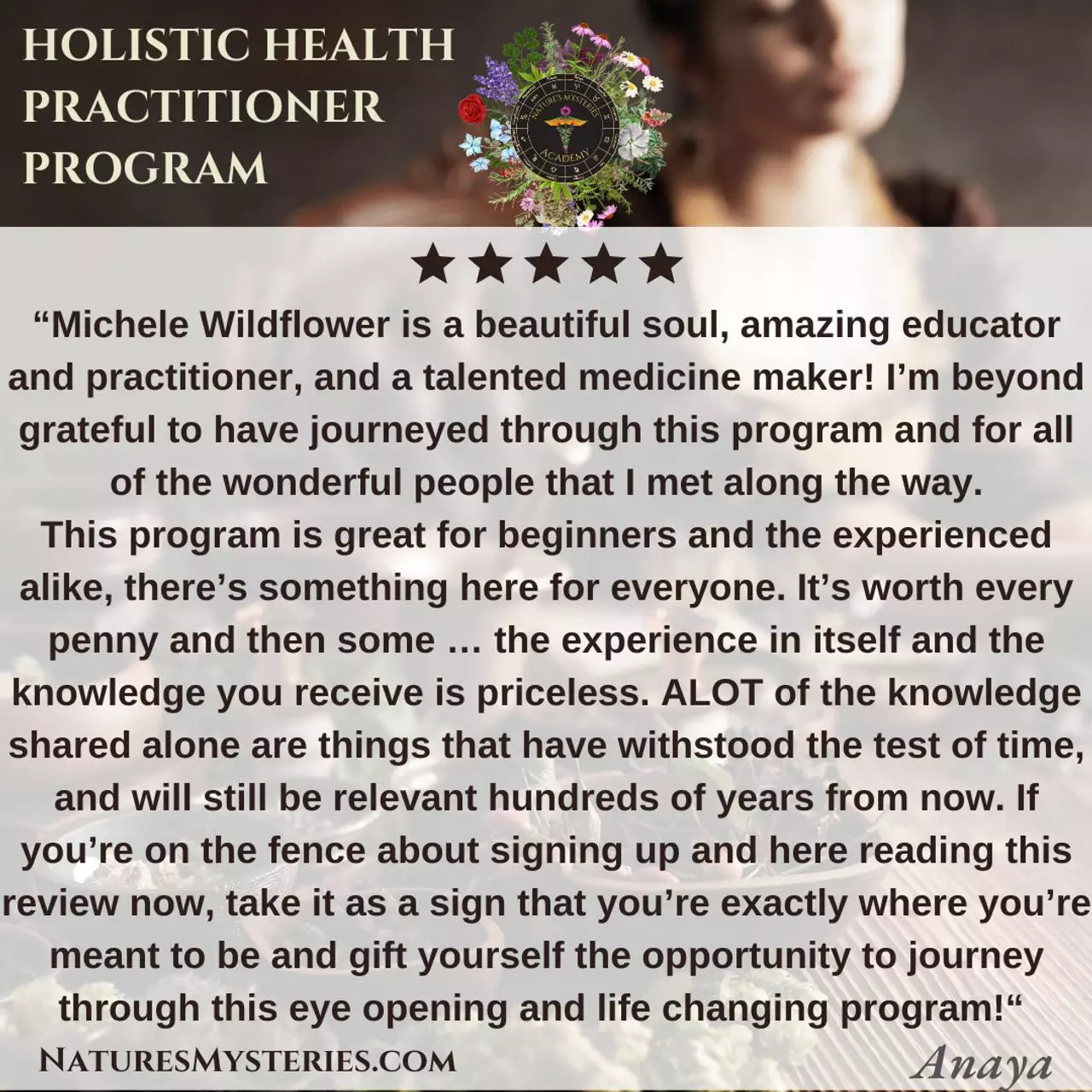
Holistic health practitioners aim to find the source of illness or disease. Furthermore, they encourage patients to participate in their own healing process through diet and exercise changes as part of a healing plan.
If you want to become a holistic health practitioner, it is vital that you enroll in an accredited program which will offer all the courses and resources you will require for success.
Accreditation
When selecting an online holistic health practitioner program, look for one that has been certified by the American Association of Drugless Practitioners. This will give you confidence that you’re receiving quality education and training; furthermore, this accreditation will increase credibility with clients.
At your school of choice, make sure that they offer a wide variety of courses and specialties. For instance, if naturopathic medicine is your field of interest, find programs offering doctorate degrees. Ayurveda might also be worth looking into as another possibility.
As more individuals take an active approach to their health, they are searching for alternative means of improving both physical and mental wellbeing. As such, holistic practitioners have seen an upsurge in popularity; these individuals can assist their clients by meeting emotional, spiritual and mental needs as well as provide advice regarding diet, exercise and sleep patterns.
Holistic health practitioners offer massage therapy, which helps release toxins from your body. In addition, they may suggest meditation or yoga techniques to lower stress levels and provide advice about supplements or lifestyle changes that could enhance overall well-being.
As per your work type, there may be various certification and licensing requirements. For instance, in order to practice naturopathy you will require a license from your state; while for becoming a nutritionist you will require completion of an accredited degree program.
Holistic health is a holistic approach to wellness that considers mind, body and spirit as interdependent components. The goal is to achieve balance by making small improvements across each of these areas; unlike Western medicine which typically treats individual symptoms. Demand for holistic practitioners has skyrocketed recently. They can make for rewarding careers.
Coursework
Students seeking careers in holistic health may wish to enroll in one of the many accredited schools online. These programs will teach students the necessary skills for promoting wellness in various forms – physical well-being as well as mental and spiritual well-being will all be covered within these courses, in addition to electives that enable students to explore other parts of the field.
No matter your medical background, anyone can become a holistic practitioner by earning an associate degree. Though this will require time and dedication, this degree will equip you with enough experience to start your own practice. In addition, bachelor’s or master’s degrees offer executive positions which give competitive edge while building strong business acumen.
Are You Seeking to Become a Holistic Health Coach? In order to become one, passion for helping people is absolutely key. Your clients will depend on you for guidance and support as they find the appropriate exercises, diet plans and stress relief strategies like meditation or yoga.
An advanced degree in holistic health provides the perfect opportunity to expand on the wellness concept of holism and how it can improve health outcomes. You’ll gain more knowledge about modern holistic healthcare movements, social change theories and ancient healing methods that differ from Western healthcare models.
An undergraduate, postgraduate or master’s degree in holistic health can be earned at various academic levels; you can choose from disciplines like massage therapy, acupuncture and Chinese medicine as well as clinical/fieldwork requirements and internship requirements for some programs. Furthermore, alternative therapies like aromatherapy and herbal medicine may also be studied.
Interaction with Other Students
Holistic health practitioners are medical professionals that focus on healing the whole person – this includes mind, body, emotions and spirit. Working closely with their patient to create a treatment plan which encompasses these factors is their goal as they also offer alternatives to traditional medical practices; this trend is becoming increasingly popular within healthcare industry and patients desire alternative methods of self-healing without resorting to conventional medications.
An ideal holistic health practitioner must have an inherent passion for helping others attain total body wellness, be highly empathetic, compassionate and curious; committed to lifelong learning for themselves as well as for their clients; possess a high degree of motivational ability; be flexible when required and have time for lifelong learning themselves. A successful holistic health practitioner will have no difficulty motivating or inspiring clients.
One of the primary skills needed by holistic health practitioners is an excellent understanding of anatomy and physiology, which allows them to identify the source of client symptoms. Furthermore, holistic practitioners must know how to best massage clients’ muscles and joints for maximum detoxification benefits and increased circulation; massage can also reduce inflammation and pain risks significantly.
Holistic health practitioners require an in-depth knowledge of herbal medicine as they frequently recommend such remedies and supplements to their patients. Herbs such as these can help relieve stress and anxiety while simultaneously balancing hormone levels; furthermore they may prevent cell damage while stimulating immune repair systems to repair themselves more quickly.
Holistic health practitioners use various forms of exercise, including yoga, cardio and strength training, to assist their patients in remaining healthy. Furthermore, holistic practitioners may teach patients about healthy eating and nutrition – this is particularly essential when managing chronic illnesses.
Holistic health practitioners are also well-known for helping their patients manage stress and anxiety through meditation and guided imagery, both of which have the ability to strengthen immune systems and increase mental clarity. Furthermore, holistic healthcare practitioners often recommend these techniques for athletes looking to enhance performance both inside the gym and out on the field.
Practical Experience
An online program for holistic health practitioners teaches students about all of the dimensions that contribute to human wellbeing. These aspects include physical, emotional, social, and spiritual well-being according to the American Holistic Health Association and can influence our overall health in various ways.
As well as learning the various branches of holistic medicine, students enrolled in a holistic health practitioner program will also learn to apply their knowledge to real-life situations. Students will also be exposed to alternative healing practices not commonly practiced within Western medicine – giving them an edge when designing personalized treatment plans for clients.
Becoming a holistic health practitioner can be highly rewarding; however, not everyone may be suitable. Before enrolling in any programs or enrolling as students themselves should carefully consider their career goals and whether this field fits within their budget and goals. Also important is researching curriculum costs so as to ensure the program fits with both of those factors.
Once a holistic health practitioner course has been completed, students must find employment. Some holistic health practitioners work for large companies while others choose to launch their own practice. Students should make sure their business has an established presence online and through other channels so that it has every chance at succeeding.
Students looking to become holistic health practitioners should search out schools offering courses related to their field of interest. Accredited by relevant organizations, these programs will grant an official credential upon completion; additionally, in certain instances financial aid could even be available to cover tuition expenses.
A student’s time spent in school depends on the career path they choose. Some fields, like massage therapy, may only require several weeks to finish while other fields like naturopathy require considerable investment both financially and personally.


